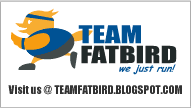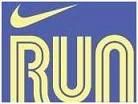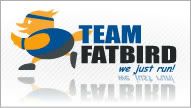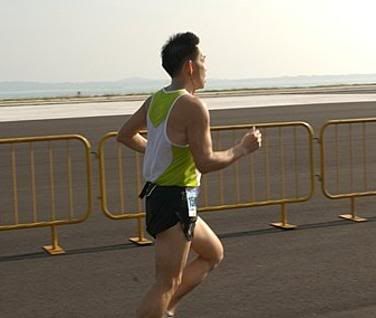Nutrition requirements for runners
Thanks to recent research conducted by exercise physiologist Mark Tarnopolsky, Ph.D., of the McMaster University Medical Center in Ontario, we're gaining a better understanding of how male an
Calorie Requirements
No big news flash here: Men eat more than women. And for good reason--men need, on average, 6 to 10 percent more calories per pound of body weight than women to keep their muscles and organs operating properly. During exercise, men also burn more calories than women. This is partly because men are typically larger than women. But also, pound for pound, men burn more calories during exercise because they generally have more muscle and less fat than women. This translates into greater calorie-burn.
For example, a 30-mile-per-week male runner needs about 20 to 22 calories per pound of body weight, or 3,200 calories per day for a 160-pound man. A woman running the same mileage needs only 18 to 20 calories per pound, or 2,400 calories a day for a 130-pound woman. Of course, your numbers may vary depending on such factors as mileage and genetics.
For women only: Since women must meet their vitamin, mineral, protein, carbohydrate, and fiber needs with fewer calories per day, they have less leeway for eating nutritionally "empty" foods such as soda or candy. Women need to eat a base of at least 1,500 to 1,800 calories a day from fruits, vegetables, grains, and quality protein sources such as soy foods, fish, beans, low-fat dairy products, and lean meats. Depending on how much you run, you may be able to include about 200 calories a day of extra foods such as cookies, ice cream, or chips.
For men only: Consuming enough calories may be a problem for some male runners. When you don't eat enough, you may lose weight unintentionally, or end up running on empty. To make sure you meet your calorie needs, don't skip meals, eat an evening snack on those days you fall behind in calories, and always follow your runs with a recovery meal that includes a hefty dose of carbohydrates along with protein. For example, a hearty tuna sandwich, fruit, some fig bars, and milk make up a great postrun meal.
Carbohydrate Counts
Research shows that men and women burn a different mix of fuels when they run, which means the genders should probably prepare differently for endurance performance. For instance, women, thanks to estrogen, burn fat better than men.
During a moderately paced run, women derive more than 40 percent of the energy needed to power their run from fat, which means precious muscle glycogen (carbohydrate) is spared. Men, on the other hand, get only 30 percent of the energy needed for running from fat. This means that men burn through their glycogen stores faster than women. Such fuel-burning efficiency helps explain why some women out-perform men during ultra-distance marathons. (Essentially, their carbohydrate stores can hold out longer.)
On a related note, Tarnopolsky's research group has also determined that when it comes to carbo-loading to boost glycogen stores, women must do more than just shift their food choices toward the usual pasta-and-bagels diet. To carbo-load fully, women should take in at least 450 grams of carbohydrates daily, or about 4 grams per pound of body weight, in order to boost glycogen stores. Most of this should come from quality carbohydrate sources such as grains, beans, and fruits.
For women only: To prepare yourself nutritionally for long runs, you need to be certain to eat enough. Aim for at least nine or more servings of grains daily (half a cup of pasta or other grains or one slice of bread per serving), choosing mostly whole grains. Also aim for seven or more fruit and vegetable servings daily.
For men only: Since your glycogen stores empty quickly during moderate to long training runs and races, make sure you eat enough carbohydrates on a daily basis. Aim for 12-plus servings of grain, and nine-plus servings of fruits and vegetables daily. For men running high mileage, a carbohydrate supplement drink, such as Gatorade Energy Drink, may help keep you fueled.
Protein Demands
It's a well-established fact that runners need more protein than the average sedentary Joe. But how much more? And is there a difference between male and female runners?
Research shows that male endurance athletes appear to break down more protein as fuel during strenuous workouts than women. This means that male endurance athletes need slightly more protein than female athletes.
Studies show that male runners need at least 50 percent more than the RDA for protein, or about 0.6 grams per pound of body weight. This is equivalent to 90 to 110 grams of protein daily for the average man. Women runners need at least 25 percent above the RDA, or about 0.5 grams per pound of body weight, which is equivalent to 65 to 75 grams daily for the average woman. Protein needs rise even more as mileage increases.
For women only: Try to eat quality protein sources at every meal, aiming for two to three 3-ounce servings of lean meats, soy foods, eggs, fish, or poultry along with beans and grains. And take in two to three servings of dairy products daily. Also include protein sources as snacks, such as soy nuts or yogurt.
For men only: You can easily meet your greater protein needs by eating quality sources such as fish, poultry, soy foods, lean meats, and eggs. (In other words, you don't need protein powders.) Aim for three to four protein servings daily, and include protein foods as snacks and during postworkout meals.
Iron Needs
All athletes, particularly runners, are at greater risk than sedentary people for anemia due to blood loss. For example, runners may experience some blood loss through gastrointestinal bleeding brought on by intense exercise. Or you can damage blood cells every time your feet hit the ground on a run, ultimately leading to some blood and iron loss.
But due to menstrual blood loss, women are at greater risk than men for iron-deficiency anemia, which boosts women's iron needs about 80 percent over those of men. What's more, many female athletes opt for a meatless diet, which exacerbates their risk of iron deficiency because meat contains the most usable form of iron. If you feel fatigued just doing daily activities, or find yourself particularly intolerant to cold temperatures, see your physician for a blood workup and an iron assessment. For women only: If you eat meat, include dark-meat poultry, fish, and lean cuts of beef, pork, and lamb. Meat-eaters and vegetarians should also eat quality iron sources such as beans, lentils, iron-fortified cereals, wheat germ, grains, green leafy vegetables, figs, and raisins. Eat all these with vitamin C-rich foods (kiwis, oranges, berries, peppers), which help boost iron absorption.
For men only: You can easily meet your lower iron needs even if you're not a meat-eater. Just be sure to include regular servings of beans and fortified breakfast cereals in your weekly meal plan.















0 Comments:
Post a Comment
<< Home